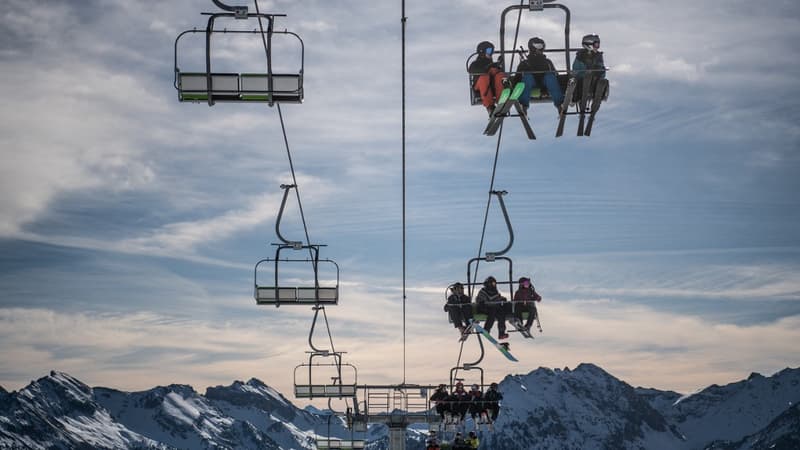In the mountains, it’s time for sobriety. As the upcoming winter sports season in resorts gears up, rising energy prices and potential grid strains stand in the way. There is no other possible option for the winter: we will have to make efforts to limit the bill and respect the objective set by the government, which has called on companies to reduce their energy consumption by 10%. However, between the lifts, the groomed slopes and the artificial snow, the bar rises quickly.
This issue is all the more important as some ski area operators are currently renegotiating their energy supply contracts. The latter are signed, in general, for three years. However, for some of the operators the contract expired this year and must be renegotiated now, in the midst of the Ukrainian crisis, despite the fact that prices have reached peaks. According to Domaines skiables de France (DSF), just over a third of operators have not yet signed their new contract today.
ski lift speed
Nothing has been finalized yet, but the stations are exploring the possibilities. The speed of the chairlifts could be slowed down and, when two lifts serve the same slopes, one of the two could be closed. Other areas are also thinking about adapting their hours, that is, opening later in the morning and closing later at night, or further optimizing the cleanliness. Savings that are not necessarily easy to find, most resorts have already committed to a consumption reduction policy for several years.
But don’t panic, it will still be possible to ski this winter. Stations will remain open. “We are not going to reduce services,” confirms Alexandre Maulin, president of Domaines skiables de France. Slowing down a chairlift, he argues, would only add a minute to the skier’s ascent time, ensuring the latter doesn’t even notice. Furthermore, these measures would generally be activated outside of peak hours or outside of school holidays. The goal is to “limit discomfort”, specifies Alexandre Maulin.
Christmas lights
Beyond the tracks themselves, reflections on sobriety also extend to the entire station. Leisure, hotels, lighting… “The ski area represents only 20% of the city’s energy consumption,” says a Val Thorens spokesperson. On the Avoriaz side, the Christmas lights will be absent this year and the water temperature will drop 3 degrees in the pools. “We are also going to ask hotels to turn off certain lights, or even private chalets to make outdoor hot tubs optional,” explains Laury Eloy, communications manager for Avoriaz 1800.
As in other places, inflation will not forgive skiing. Some of the stations are preparing to increase the prices of packages. “We are lucky because our energy contract is still in force, but we have to deal with a general increase in our expenses,” stresses Bérangère Teillard, in the communication from La Clusaz. At the Aravis station, the one-day ski pass ranges from 43.5 euros to 47 euros. The Val Thorens estate also intends to raise the price. In Alsace, as reported blue francevarious Vosges resorts will also follow suit.
Source: BFM TV


